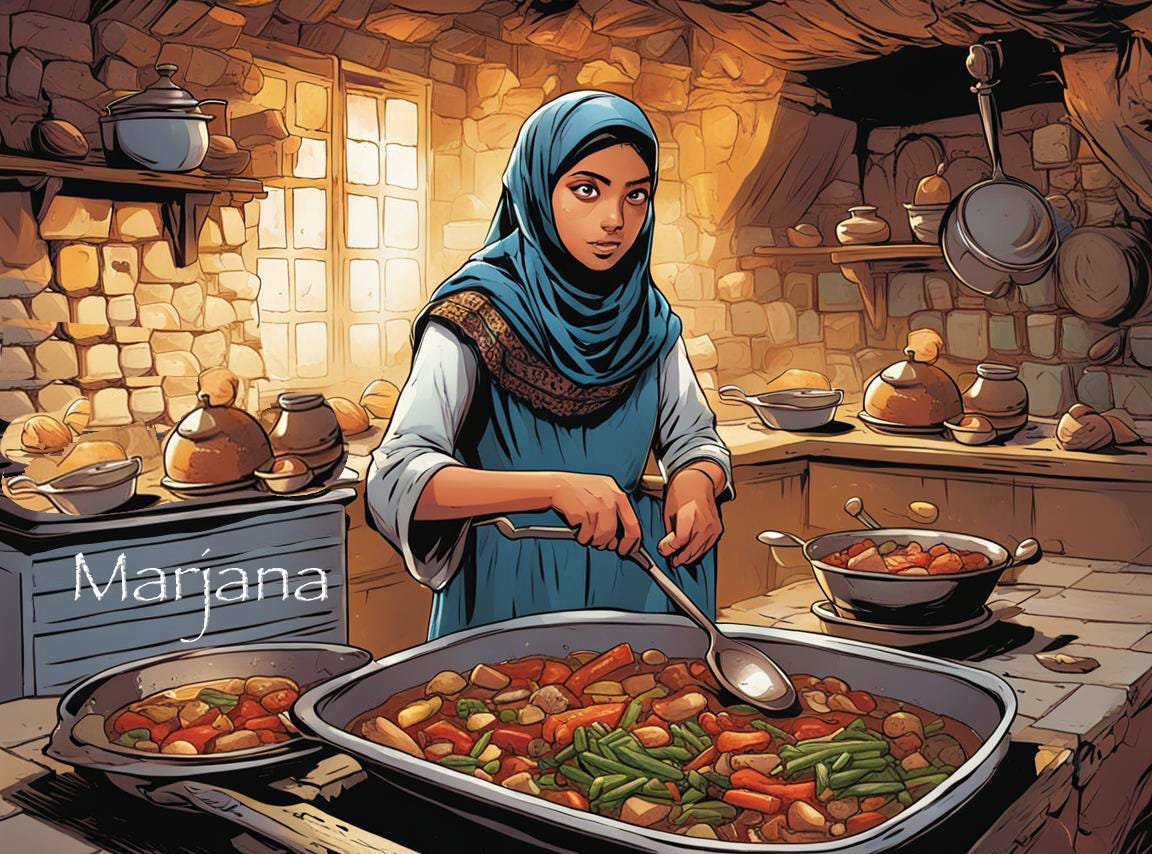What did you get from the last program you watched on Netflix? Or the last novel you read? Was the story meaningful to you? Can you put your finger on it, the reason why it was meaningful?
Stories impact us when we recognize the situation, and the characters. It’s what happens to the people in the story that concerns us. We follow the plot line, but what really tugs at our emotions is the theme.
Let’s take a deeper look at that. Let’s say you are a young middle class person, brought up in a nice neighborhood, and then, when you grow up to go out on your own, you might not be able to afford a nice place in a middle class area. So now you find yourself in a not-so-nice area. If you watched the popular show on Amazon, called Fallout, you would relate to the circumstances that Lucy faces. However, the theme of the story is not about having to deal with the Wasteland, but choosing to deal with it, in order to fulfill the mission she is on.
If you say, hero’s journey! You are on the money. Another title for the hero’s journey is, the school of hard knocks. It’s that place with no parents to protect you, and, quite literally, you are on your own. But you choose to be in the iffy neighborhood because you won’t spend a lot of money on rent. You will have a better cash flow, with money to save for other uses in the future. Like investing in a business.
That is actually liberating, if you are looking ahead to fulfilling your mission, or purpose, in life. Like all liberation, the exhilaration of being on your own, can also scare the pants off you.
This situation can also hit you mid life, when you are tired of your routine, and are in search of a way to better your life. That’s when you go back to “school” to improve your skill set, or add on to them. Maybe you are in the mood to try something new?
Actually, learning skill sets, no matter the age, is complex in a way you don’t think about. Because mastering one set of competencies means turning a corner to the actuality of how to apply them. The question becomes, did the school teach you everything you need to know? No. What they teach is how to open the door so that you can step inside. It is walking the hallway, that is, doing the actual job, that will teach you the rest. That’s when the experience will accrue, and you become competent. New problems will pop up, new details to pay attention to, but as long as you keep asking questions, and observing others, you will keep moving.
Oh sure, sometimes you will move backwards. But that is a regrouping, time. You’re still moving. Stagnating, not going anywhere, is the danger zone.
Mostly, when we want to improve ourselves it is because we want to do more. Like being a decision maker; that is, to be the leader of the group or company. To begin that process, you may read self-help books. A couple of those classics, like The 7 Habits of Highly Effective People, by Stephen R. Covey, or that oldie, but goody, by Dale Carnegie, How to Win Friends and Influence People, will not fail you. And then, after that? Read good stories. Or watch good movies based on good stories.
The difference in the two types of books, self-learning versus fiction, is the difference in observing laboratory rats, versus rats in the alley. Fiction writers will tell you a story about the rats in the alley because the excitement, the tension of real life, is in the alley. Friends and enemies, to have, to not have, the forever search for new sources of food, and the goal of survival, is always in play in the alley. There is no researcher to make sure you are fed.
Rather like your own life, yes? Reading or watching stories that match your life helps you make sense of it. It also gives you clues on what, and what not, to do. The older the story, the more reliable its wisdom is. It is time tested.
In truth, new stories grow out of the old stories. For example, the hero’s journey story is often told in the ancient myths. Gilgamesh, Theseus, Psyche, Abraham, and Moses, to name a few. Those heroes have influenced us through the ages. The names change and they remix the plot, but the theme remains the same. Because it is the theme that is the guts of the story, the reason why it is being told. As the philosopher and novelist, Ayn Rand, said decades back, you cannot separate the philosopher from the novelist. I say, you cannot separate the teacher from the storyteller. We tell stories for a reason.
The storyteller teaches through stories. No matter what part of life, what part of your soul you want to master, there is a story for that.
The truth in the fiction is in our reactions to it. Did you like the story? Why? That tells you something about you, so introspect. The flip side is this; did you dislike that story? Why? That can open the door just as widely. Carl Jung had a saying: “What you resist, persists.” Which means what you don’t like, can be an instructive can of worms, if you open it.
Stories are gold when you want to move up in life. I use stories to teach leadership skills. Indeed, stories are loaded with wisdom when it comes to competent, and incompetent, leaders. What is truly fun about the stories is you learn that leaders come from the least expected places. Because authentic leaders know no class system. From the lowest on the economic scale, to the highest, the personality of the leader is innate. He or she has to lead like a dancer has to dance. Like the dancer, the skills needed must be taught and developed. There are stories that cover all aspects of leadership development, including deep dives into failures. Because you learn as much from failure as you do from positive outcomes.
Learning what not to do is just as important as learning what to do. Learning from failure gives context. Not all situations require the same touch. Just think of those rats in the alleys. When something new or different comes along, first they sniff it out. We call that observation. Oh yes, there’s a story for that. It’s called Ali Baba and the 40 Thieves. Ali Baba, when he stumbled onto a prospective situation, kept his mouth shut, climbed a tree, and watched. He patiently waited for the situation to be safe, before he climbed down that tree. Oh yes, whilst he waited patiently, he learned a secret code. Can you tell me what that code is? Yes, “Open sesame.”
Ali Baba is also a story that has a leader who is a slave, a woman slave at that. Her name is Marjana, and I would love her to work with me! There’s another surprising aspect of old stories. You will find plenty of smart women, who are leaders in their own right.
Read Ali Baba. Do not watch the films made of this story. Unfortunately, they do not tell the real story.
My book, Leadership in Literature, tells the real story. It is in that section titled, Badass Women Leaders.
Leadership in Literature will make its debut next year. In the meantime, have fun with Ali Baba. And the other stories I’ll be sending your way.





